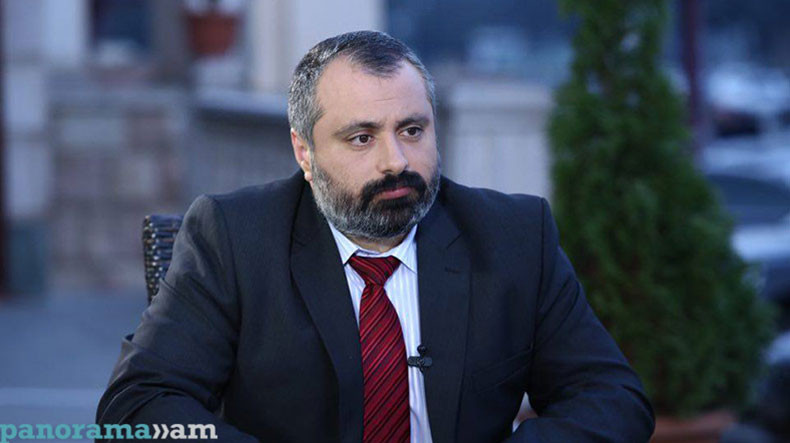
OSCE Minsk Group furthers the idea of mutually acceptable settlement – Davit Babayan
The statement on the Nagorno Karabakh conflict adopted by Russian FM Sergey Lavrov, U.S. Secretary of State Rex Tillerson, and French Permanent Representative Véronique Roger-Lacan on Thursday ensures the continued negotiations on the conflict settlement, press secretary to Artsakh President Davit Babayan told Panorama.am, commenting on the joint statement of the Heads of Delegation of the OSCE Minsk Group Co-Chair countries at the end of the organization’s Ministerial Council in Vienna.
In Babayan’s words, the OSCE Minsk Group furthers the idea of mutually acceptable settlement to the conflict. “The call for peace and stability is stressed which is important. It means major efforts are again exerted to maintain the peace. It is of no insignificance that the statement contains no compulsion, decision or a proposal, yet only calls for a negotiated solution. We see consensus among the Minsk Group Co-Chairing countries, which is a united approach by the international community toward the peaceful settlement,” Babayan remarked.
Asked whether he shares the opinion voiced by several experts suggesting Armenia has strengthened its stance [over conflict settlement] after signing the Comprehensive and Enhanced Partnership Agreement with the EU, Artsakh president’s spokesperson noted: “Before the signing, Azerbaijan was trying hard to depict Armenia as an anti- western state, yet the concluded agreement came to close any room for hysteric speculations of the adversary. The Armenia-EU Agreement has definitely raised and strengthened the role of the Armenian factor as a bridge between Russia and the EU,” said Babayan.
To remind, the Heads of Delegation of the OSCE Minsk Group Co-Chair countries adopted a joint statement https://www.panorama.am/en/news/2017/12/07/OSCE-Minsk-Group/1876066 on the Nagorno Karabakh conflict, reiterating their joint commitment to negotiating a peaceful resolution to the conflict “as the only way to bring real reconciliation to the peoples of the region.”
The statement vows the Co-Chairing states’ commitment to mediating a peaceful settlement of the conflict “on the basis of the core principles of the Helsinki Final Act, including the non-use of force or threat of force, territorial integrity, and the equal rights and self-determination of peoples.” The authors also reminded of the declared commitment of Armenian and Azerbaijani presidents to take additional measures to reduce tension on the line of contact, including the implementation of the agreements reached during the Vienna and St. Petersburg Summits in 2016.
Newsfeed
Videos






























